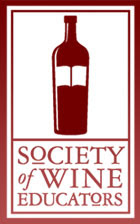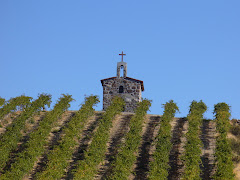In a moment of study, I come across things that I’ve either A) forgotten about, B) know nothing about, or C) see things from a different perspective. Never do I ever get that, “I knew that!” epiphany. My grandma always said “arrogance is ALWAYS ugly.” Anyway, I had time during one of my wife’s doctor’s appointments to reread Jaime Goode’s THE SCIENCE OF WINE, which is at once a simple read and quite challenging. Simple in that it is put together in such a way that those without much (if any) scientific background can follow the book and come away learning what lies beyond wine’s base character. Yet the challenging part about this book is the level of expertise and unbiased presentation of empirical data.
It would take a few months’ worth of blogs to accommodate discussion on the entire book, but the chapter that I was most glad to read about was the chapter on “Biodynamics.” A lot of people bandy about the term, yet I haven’t come across too many individuals in this business that fully understand what Biodynamics really are.
First off, organic wines and biodynamic wines are two completely separate things. Organic wines deal solely with the fruit itself, with no pesticides or herbicides used in the vineyards, only manures and natural irrigation and the like used to “feed” the vines, and no machinery used to pick the fruit. However, Biodynamic agriculture applies that care to the land surrounding the vineyards as well. The use of other crops within the rows of vines to help with insects, fungi, and other vineyard pests, composting, using livestock to graze on surrounding land instead of using lawnmowers and other machinery – these and so much more are part of the “science” of biodynamic viticulture.
Jaime Goode explains that the birth of biodynamic farming can be credited with Austrian philosopher and scientist Rudolf Steiner. Through a series of lectures conducted in 1924, Steiner “created the “spiritual science” of anthroposophy.” Later in life, Steiner’s eight lectures entitled Spiritual Foundations for the Renewal of Agriculture helped form the foundation for the Biodynamic Farming movement that exists today.
Not to give too much of the book away, anyone who wishes to learn more about Biodynamics, or other aspects regarding the science of wine should pick up Jaime Goode’s book. Especially for the home winemaker, or über-cork dork, this book is fascinating.
Subscribe to:
Post Comments (Atom)











No comments:
Post a Comment